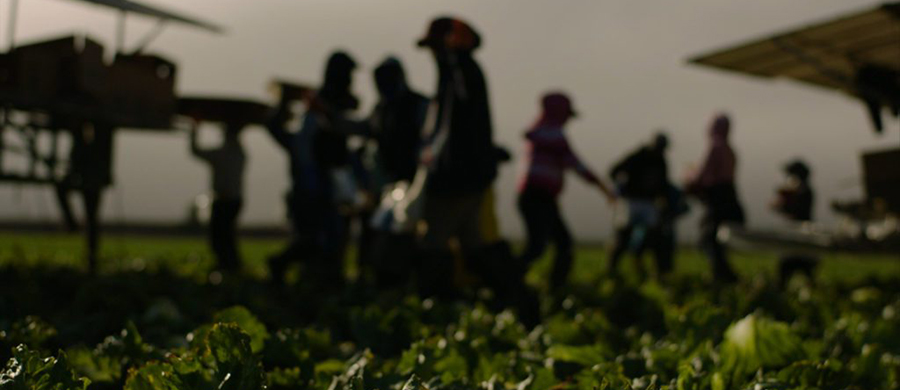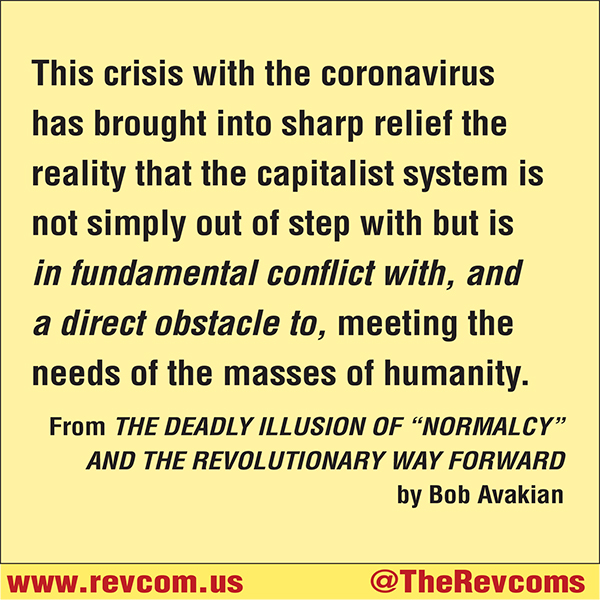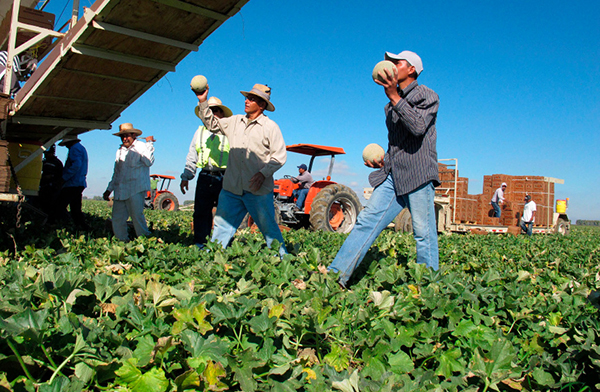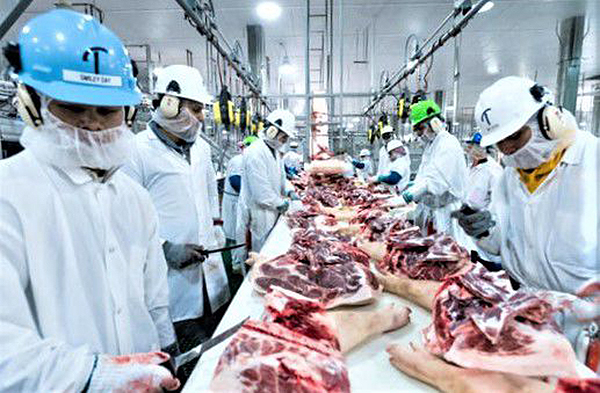
Check It Out:
COVID’s Hidden Toll—the threat to the farmworkers who slave in the fields of California
| revcom.us
COVID’s Hidden Toll is the most recent episode of Frontline, the PBS documentary and investigative series. It reveals in the most gut-wrenching, moving, and powerful way how the lives of workers in the fields and meat processing plants in Monterey County, California—already among the most exploited workers in this country—have been made infinitely worse by this pandemic, and by the way they are being treated by multi-million dollar agricultural and meat-processing businesses. More than one reviewer has compared its impact to the unforgettable 1960 CBS documentary Harvest of Shame by Edward R. Murrow.1
A great strength of this documentary is that the journalists who did the investigation, Daffodil Altan and Andrés Cediel, let the workers they interviewed tell their own stories in their own words, letting you see the world of these workers through their own eyes. Combined with an analysis of the overall statistics, COVID’s Hidden Toll reveals how much greater the impact of the coronavirus has been on the immigrant, and largely undocumented, population in the valleys of California.
There is Sinthia, a broccoli picker, waiting outside in the cold at 4 am for the ride to work—“We are packed [with 14 others] like sardines in that van.” Sinthia has cancer and diabetes, but has no choice but to work—even as the virus is spreading among the crew. She is the sole support of her mother, her children, and two disabled siblings, one of whom is blind and deaf, and another who is quadriplegic. The situation these workers are forced into is unsettling. The company doesn’t even provide masks: “We go out in the field and expose ourselves. We are not robots. Just because we work in the fields, it doesn’t mean we won’t get infected. We will get infected.”
These workers describe being in constant fear: of catching the coronavirus; of being fired from their jobs for not reporting for work, even if they are sick; and for those whose status is undocumented, it can keep many from even risking getting tested. And the employers know this. When the workers attempt a work stoppage, you get to hear a recording secretly made by one of the workers as a supervisor “explains” the risks—of getting fired, of being unable to find another job, of not being able to feed their family or keep a roof over their head—if they don’t go back to work immediately.
A worker at a meat packing plant says, “Every day we go to work, we’re thinking about the coronavirus ―if we’re going to catch it again. Who is going to catch it? Is it on the walls? Is it on the product? Is it on the equipment we use? It doesn’t feel like we’re essential workers. It feels like we’re slaves.” He is one of the 200 workers in that plant who have tested positive for the virus.
Through this investigation we learn that there are no national mandatory COVID protections specifically for agriculture workers—only voluntary guidelines; how companies don’t have to tell employees about outbreaks at their worksites; and what efforts are being made to try to improve the situation in California, where many of America’s fruits and vegetables are grown. There are more than 90,000 farmworkers in Monterey County who plant, harvest, and package the country’s food. According to new research, agricultural workers in Monterey County are three times more likely to contract COVID-19 than workers in other industries. Don’t miss this documentary.
1. Harvest of Shame, which was broadcast on CBS the day after Thanksgiving 1960, came to be considered one of the best, most powerful documentaries every made in the U.S. Narrated by Edward R. Murrow, it exposed the horrid conditions faced by the migrant workers in this country, of whom Murrow said, “They are the migrants, workers in the sweat shops of the soil—the harvest of shame.” It was the first time millions of Americans saw, close up, what it meant to live in poverty. Living in crowded, run-down housing, paid $1 per day, these Black and white workers migrated from the tomato, bean, and sugarcane fields of Florida north to the apple orchards of New York.
It was intended to shock the nation to do something about their conditions. Murrow told the audience, “We present this report on Thanksgiving because, were it not for the labor of the people you are going to meet, you might not starve, but your table would not be laden with the luxuries that we have all come to regard as essentials.” [back]


Farmworkers in Monterrey, California. COVID’s Hidden Toll reveals how they live in fear: fear of contracting the virus, fear of being fired if they get sick, and fear if they are undocumented. (Photo: AP)

Workers at a pork factory. In the documentary, we hear from one of the 200 meatpacking workers who tested positive for COVID-19. (Photo: USDA)
Get a free email subscription to revcom.us:

